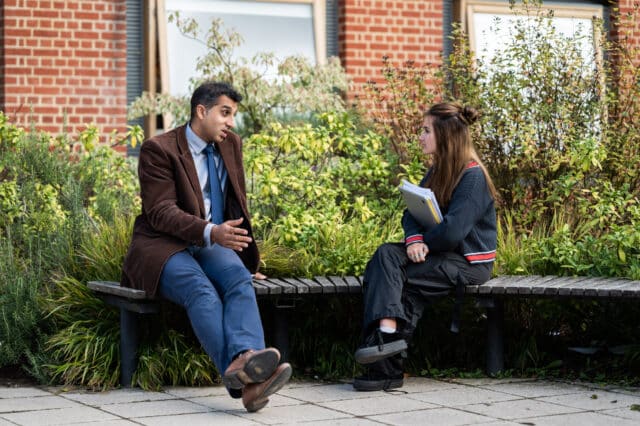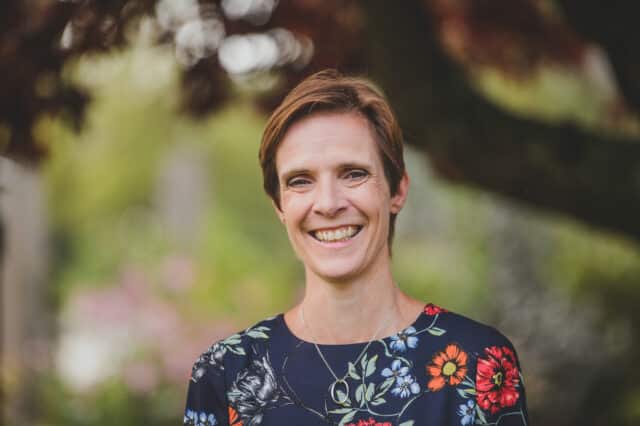Blog
Building community through peer-led education

Sarah Gledhill
Deputy Head of Berkhamsted Girls and Head of Personal Development
Read the blog
It is a difficult time to be a teenager. Research by NHS England suggests that up to one in five young people experienced mental health issues in 2023, and a recent report by the Children’s Society described a ‘happiness recession’ amongst UK teenagers. What’s more, as the digital landscape constantly evolves, parents and teachers are often left behind the curve – demonstrated most recently in the Netflix TV show Adolescence. In light of this knowledge, then, how can we adapt our pastoral care strategy to make sure we are giving young people the support they need?
At Berkhamsted, we have been considering how and when we can decentre teachers. While we have a robust system of pastoral care in place – including Graydin coaching trained tutors, Heads of Houses, nurses, counsellors and a chaplaincy team – we also run a variety of programmes which put our pupils at the helm. Underpinned by the Mental Health Foundation’s Peer-Led Education Project, we give pupils the opportunity to develop their leadership skills whilst connecting with their younger peers.
This unique approach works on the basis that while some young people may feel misunderstood by an authority figure, having someone closer to their own age who offers advice and guidance might help get the message through. The authenticity of personal experience cannot be overstated, and while teachers can try their best to relate to their pupils, sometimes it’s better to hear from someone ‘in their shoes’. The presence of older role models who actively demonstrate positive behaviour can also affect the overall culture of the School, as well as bridging the gaps between year groups and contributing to an inclusive, supportive community.
So what does peer-led education look like? In September 2021, we launched the first Allies and Advocates initiative as a way for Sixth Form students to lead conversations around relationships and mental health with younger pupils. Throughout the year, Sixth Form volunteers visit every Year 9 tutor group across the Boys and Girls Schools, delivering sessions on a range of pertinent topics and engaging with their younger peers to answer questions or challenge negative beliefs. The sessions are devised and planned entirely by students and the topics we choose are based on surveying Year 9 pupils to understand which issues matter the most to them. This year, the results reported high levels of worry over future career plans, exam stress, relationships and identity.
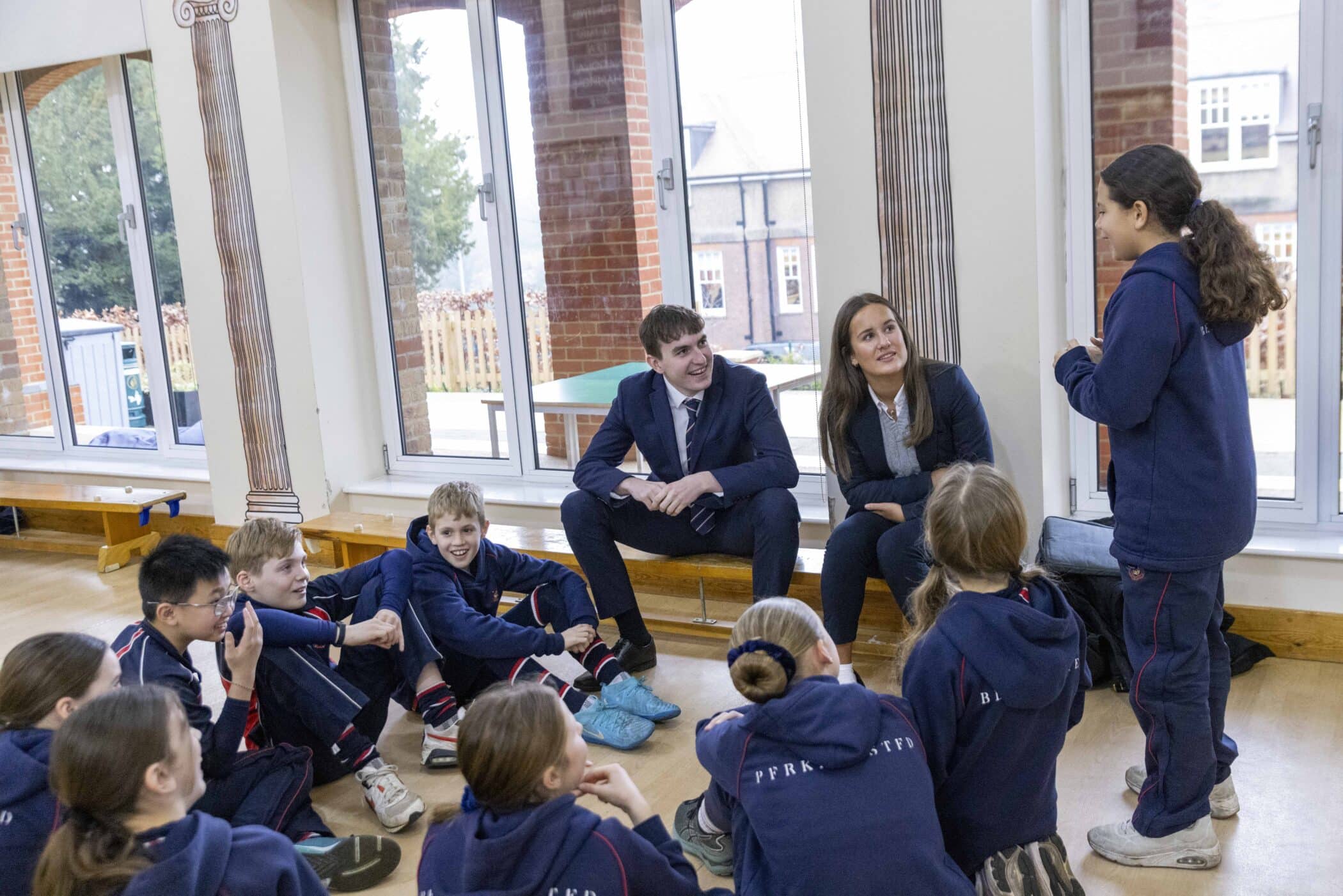
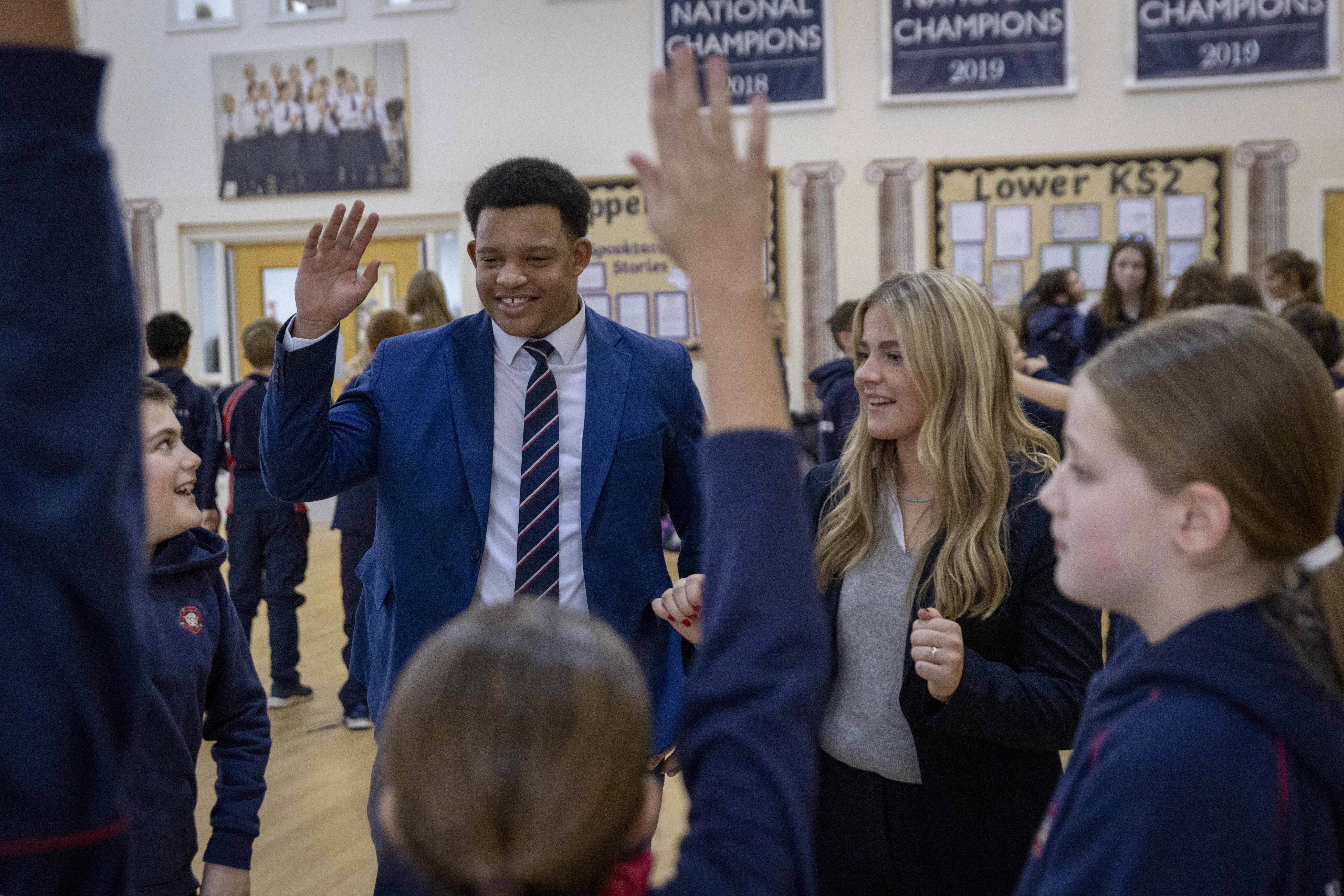
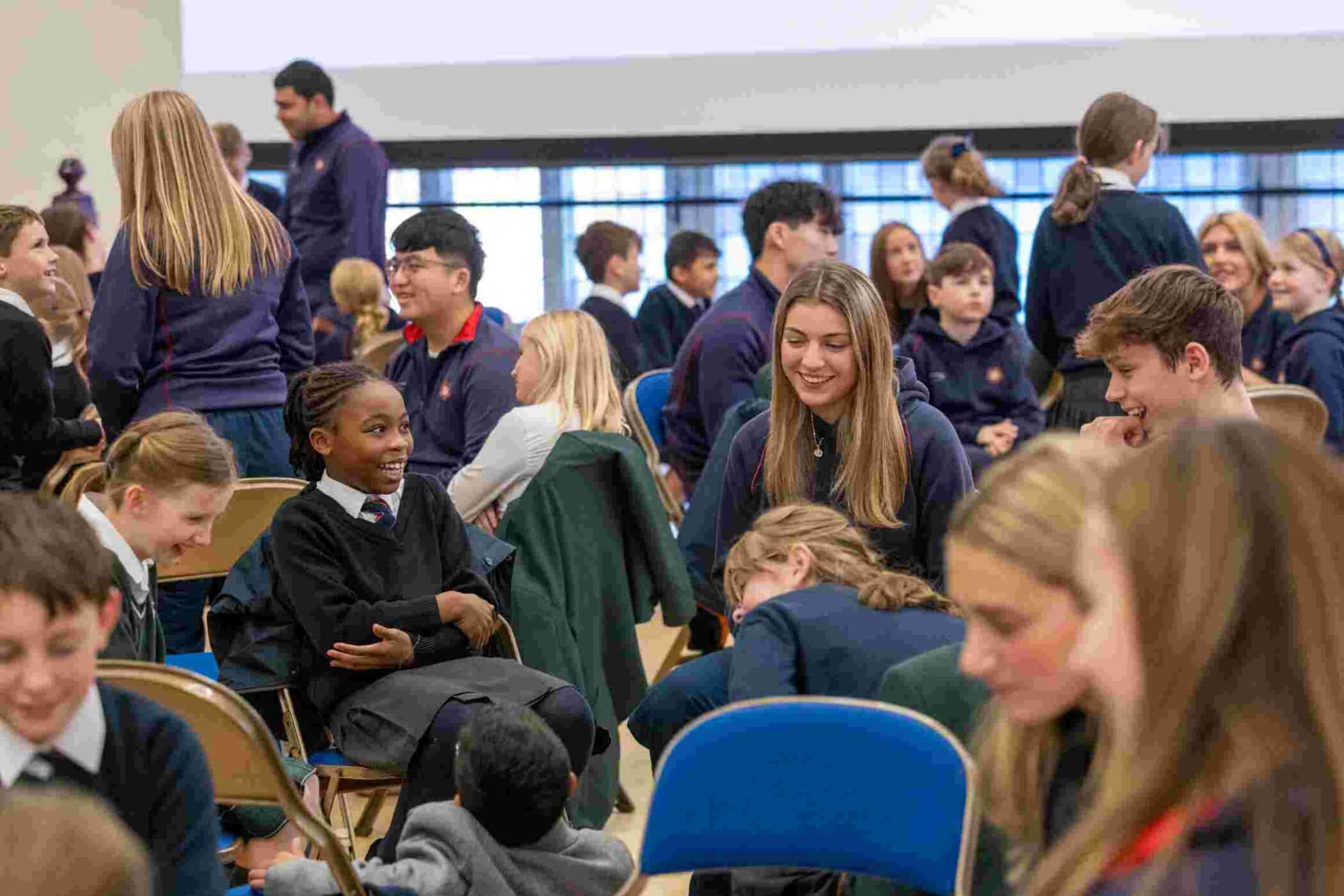
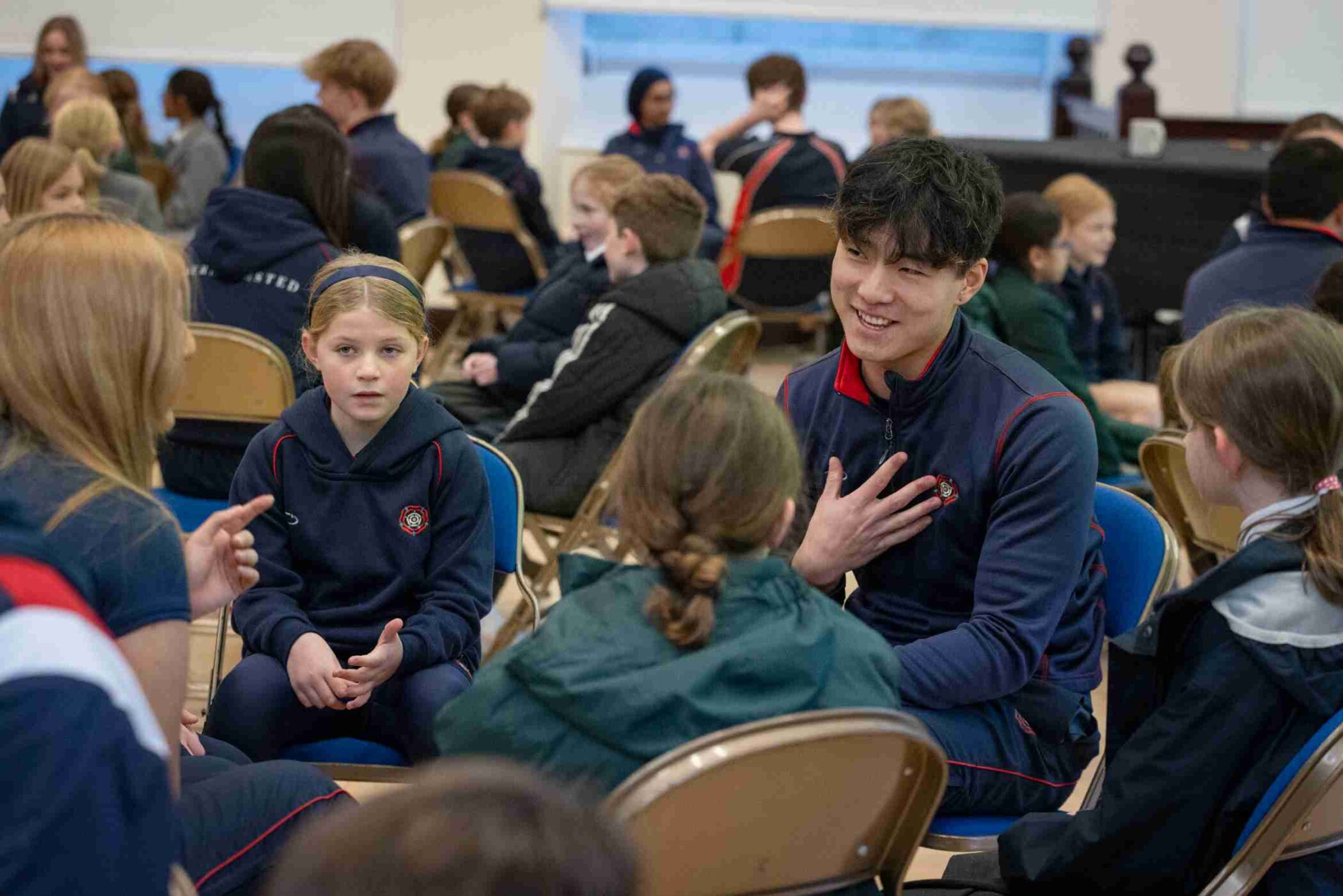
In 2022, we expanded the scheme to engage with pupils even lower down the School. Rising Allies sees small groups of Year 8 pupils visit Year 5s in our Prep School to deliver sessions on topics such as online safety, healthy device and phone use, friendships and bullying. We also held a breakfast to celebrate Pride Month and encourage pupils to build real connections with their younger mentees. Not only does this initiative develop leadership skills from a young age, but engaging with Prep pupils helps to make the transition to Senior School less daunting. Hopefully pupils will have a few friendly faces to look out for when they move up to Year 7!
Pupils have really engaged with both initiatives and feedback has been extremely positive from everyone involved. One Rising Ally said: “We spoke from the heart and from experience, and hope that they feel more able to deal with some of the challenges that come with growing up.” It has been so inspiring to see pupils of all ages demonstrate compassion and empathy for one another, exploring sensitive topics with maturity and thoughtfulness. We have also extended this peer-led approach to other areas of school life, recently running an oracy mentoring workshop in which Sixth Form students designed and led a session on public speaking to our Year 6s. By implementing this approach into school life, pupils of all ages have the chance to interact and learn from one another.
As pupils move up through the School – first as recipients of Rising Allies, then in turn as Allies themselves – we cultivate a culture of service that sees pupils actively desiring to support their peers. Our core value ‘Serve Others’ underpins these schemes and hopefully stays with pupils even as they move on beyond our School. Indeed, studies show that giving back is a powerful tool for boosting mental wellbeing. In a time where young people are feeling increasingly isolated, perhaps the answer can be found in building a community.

